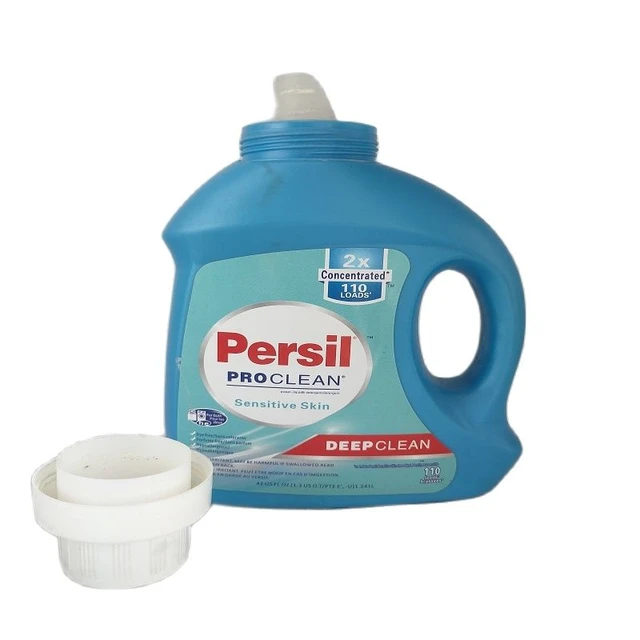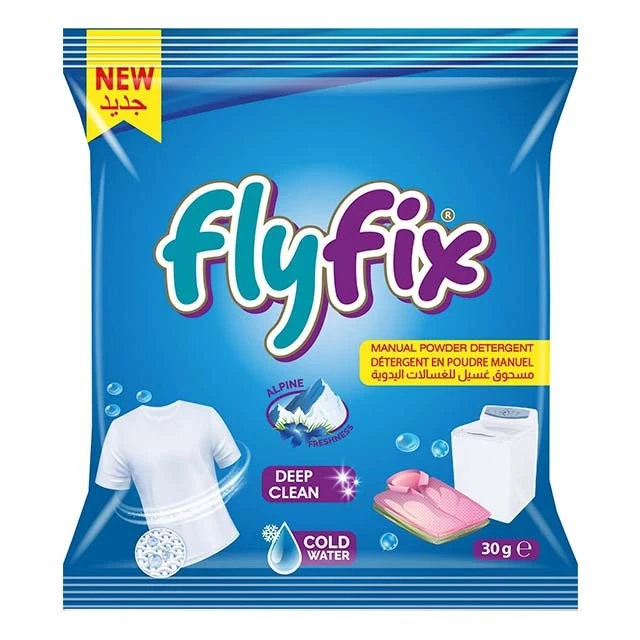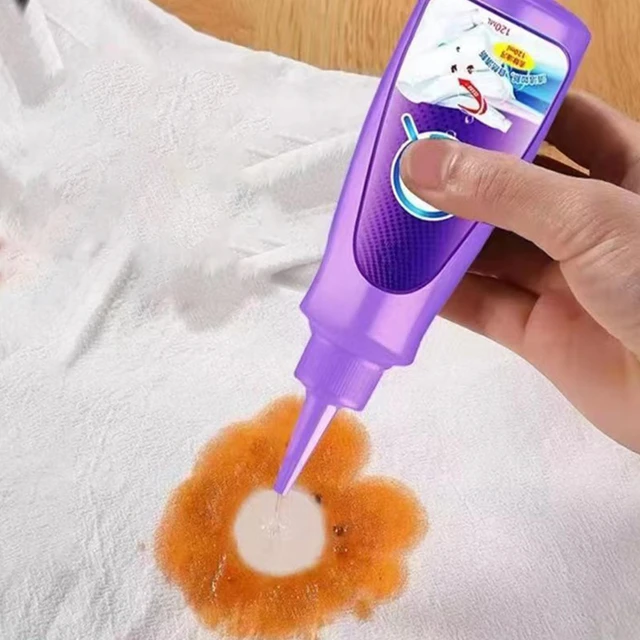 Introduction:
Introduction:
Laundry detergent is a household staple that helps keep our clothes clean and fresh. However, like any other product, there may be concerns about its shelf life and whether it can go bad. Understanding the shelf life of laundry detergent and how to properly store it is essential for maintaining its effectiveness. In this comprehensive guide, we will explore whether laundry detergent can go bad, factors that affect its shelf life, and storage tips to ensure it remains viable over time.
 Here are some common types of laundry detergents:
Here are some common types of laundry detergents:
Powder Detergent:
Powder detergents have been a traditional choice for laundry cleaning. They are typically composed of granulated soap particles mixed with builders and other ingredients. Powder detergents are effective at removing stains and can be used in both top-loading and front-loading washing machines.
Liquid Detergent:
Liquid detergents are versatile and easy to use. They come in liquid form and are usually poured directly into the washing machine. Liquid detergents are effective at cleaning a wide range of fabrics and stains, and they dissolve easily in water. They are suitable for both top-loading and front-loading machines.
Pods or Packs:
Laundry detergent pods or packs are pre-measured single-use portions of concentrated detergent. They offer convenience and simplicity as they can be directly placed in the washing machine without measuring or pouring. These pods are popular and often come in a dissolvable film that releases the detergent when in contact with water.
High-Efficiency (HE) Detergent:
High-Efficiency detergents are specifically formulated for use in high-efficiency washing machines, which use less water and energy than traditional machines. HE detergents are designed to produce fewer suds and are more concentrated to provide effective cleaning in lower water levels.
Eco-Friendly or Plant-Based Detergent:
Eco-friendly or plant-based detergents are formulated using natural ingredients and are free from harsh chemicals, artificial fragrances, and dyes. They are biodegradable and environmentally friendly options for those seeking a more sustainable laundry detergent.
Specialty Detergents:
Specialty detergents are designed to cater to specific needs, such as baby detergents for gentle cleaning of baby clothes, sports detergents for removing tough stains and odors from workout attire, or sensitive skin detergents for individuals with allergies or sensitive skin.
It’s important to consider factors such as fabric type, washing machine type, personal preferences, and any specific requirements (such as allergies or environmental concerns) when choosing a laundry detergent. Experimenting with different types can help determine the most suitable option for your laundry needs.
 Shelf Life of Laundry Detergent
Shelf Life of Laundry Detergent
General Shelf Life:
Laundry detergent typically has a shelf life of approximately one to two years.
However, this can vary depending on the specific brand, formulation, and storage conditions.
Expiration Date:
Many laundry detergents indicate an expiration date on the packaging.
It is advisable to use the detergent before the stated expiration date for optimal results.
Changes Over Time:
Over time, laundry detergent may undergo changes such as thickening, separating, or losing its effectiveness.
These changes can impact its cleaning power and overall performance.
Factors Affecting Shelf Life
Exposure to Air and Moisture:
Exposure to air and moisture can accelerate the degradation of laundry detergent.
It is important to keep the detergent container tightly sealed and in a dry environment.
Extreme Temperatures:
Extreme temperatures, such as high heat or freezing, can affect the consistency and efficacy of laundry detergent.
It is best to store detergent in a cool, dry place away from direct sunlight and fluctuations in temperature.
Quality and Preservatives:
The quality and presence of preservatives in the laundry detergent can impact its shelf life.
Higher quality detergents with sufficient preservatives tend to have longer shelf lives.
Signs that Laundry Detergent Has Gone Bad
Changes in Color or Odor:
A noticeable change in the color or odor of the detergent may indicate that it has gone bad.
If the detergent develops a rancid or foul smell, it is advisable to discontinue its use.
Separation or Clumping:
If the detergent separates into layers or forms clumps, it may no longer be effective or dissolve properly in the wash.
Shake the container gently to determine if the detergent recombines.
Storage Tips for Extending Shelf Life
Keep in Original Packaging:
Store laundry detergent in its original packaging, as it is specifically designed to protect the detergent from external factors.
The original packaging helps maintain the detergent’s quality and prevents exposure to air and moisture.
Seal the Container Properly:
Ensure the detergent container is tightly sealed after each use to prevent air and moisture from entering.
This helps maintain the detergent’s consistency and effectiveness.
Store in a Cool, Dry Place:
Keep the detergent in a cool, dry place away from direct sunlight and extreme temperatures.
Avoid storing it near heat sources or in areas prone to humidity.
 If you experience an allergic reaction or irritation after using expired laundry detergent
If you experience an allergic reaction or irritation after using expired laundry detergent
If you experience an allergic reaction or irritation after using expired laundry detergent, here are some steps to take:
Stop Using the Detergent:
Discontinue using the expired laundry detergent immediately to prevent further allergic reactions or irritation.
Rinse Clothes Thoroughly:
If possible, rinse the affected clothes with clean water to remove any residual detergent that may be causing the allergic reaction. If the clothing is unable to be rinsed immediately, set them aside until they can be properly washed with a different, non-expired detergent.
Seek Medical Attention:
If your allergic reaction is severe or persists, it is important to seek medical attention. Contact a healthcare professional, such as a doctor or allergist, who can provide appropriate guidance and treatment options.
Take Antihistamines:
Over-the-counter antihistamines can help relieve mild allergic reactions, such as itching or hives. Follow the instructions on the packaging or consult a pharmacist for proper dosage and usage.
Consult a Dermatologist:
If you experience skin irritation or a rash from the expired laundry detergent, consider consulting a dermatologist. They can provide specific recommendations for managing the allergic reaction and offer advice on suitable alternative laundry detergents for sensitive skin.
Properly Dispose of the Expired Detergent:
Safely dispose of the expired laundry detergent to prevent further accidents or misuse. Follow local waste disposal guidelines or contact your local waste management facility for proper disposal instructions.
Choose Hypoallergenic or Sensitive Skin Detergents:
Moving forward, opt for hypoallergenic or detergents specifically designed for sensitive skin. These products are typically formulated to be less likely to cause allergic reactions or irritation.
Remember to always check the expiration dates on laundry detergents and other household products before using them to avoid potential allergic reactions or adverse effects.
 Conclusion:
Conclusion:
While laundry detergent does have a shelf life, with proper storage and attention to signs of degradation or spoilage, it can remain effective for an extended period. Factors such as exposure to air and moisture, extreme temperatures, and quality of the detergent can affect its shelf life. By understanding these factors and following storage guidelines, you can maximize the shelf life and maintain the efficacy of your laundry detergent. Regularly check for signs of spoilage and discard any detergent that has gone bad. With proper storage and attention, you can ensure your laundry detergent continues to provide clean and fresh results for all your laundry needs.
